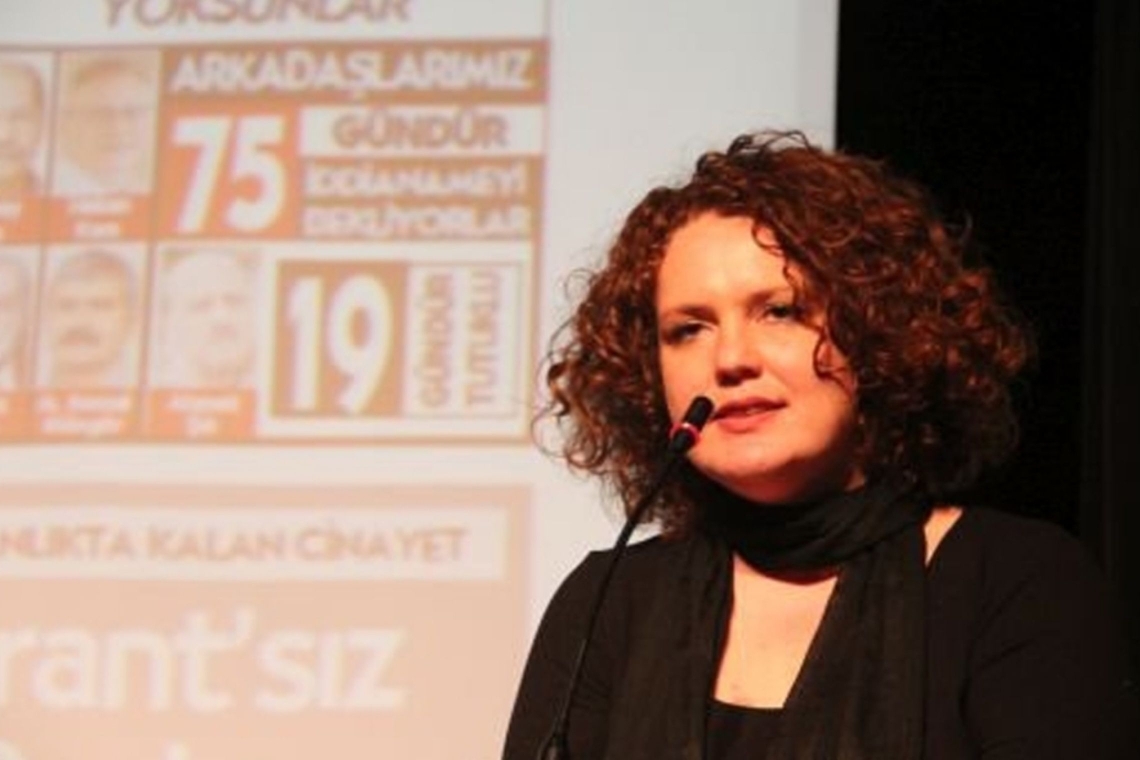*Elif Akgül
In a letter penned from Bakırköy Women's Closed Prison in Istanbul, detained journalist Elif Akgül reflects on the challenges of staying informed behind bars, highlighting the near-total absence of access to independent news. Akgül, who has been in pretrial detention since Feb. 21, recounts her struggle to access reliable information in prison and questions what it means to remain human in a place where the right to receive news is so heavily restricted.
“Just a few months ago, I wrote a news story for the P24 blog about the importance of Açık Radyo continuing its terrestrial broadcast, especially for listeners in prisons,” Akgül wrote. She recalled an interview with Açık Radyo Program Coordinator Didem Gençtürk, who had emphasized the significance of broadcast access for inmates. At the time, Akgül structured the article around the role of terrestrial radio in times of natural disasters, given Turkey’s vulnerability to earthquakes.
“But the phrase ‘vital role’ goes beyond basic survival,” she reflected. “When we reduce ‘vital’ to simply breathing, we ignore the question: What makes us human?” She admits that she soon came to experience this reality herself.
A news blackout behind bars
Akgül describes being detained on the morning of Feb. 18 and spending four days with no access to outside information. After her arrest on Feb. 21, she was taken to Bakırköy Women’s Closed Prison. Although the facility sometimes plays shared radio broadcasts, Akgül says they provided little to no actual news content.
“When we were moved to the ward, we had no radio, no TV, and no newspapers. We were completely in the dark,” she wrote. “We had many visitors, yes, but the only news we received was limited to external expressions of solidarity or speculations about how long we might remain in custody.”
Eventually, a handheld radio purchased from the prison commissary brought some relief. However, even this proved unreliable. “We could only pick up pro-government channels. Still, we heard about Trump and Zelensky’s spat, and Abdullah Öcalan’s statement, twisting the radio antenna every which way to get a signal.”
News is more than just headlines
“But news is more than ‘this happened, that happened,’” Akgül wrote. She recounted asking a visiting lawyer to describe the body language and seating arrangement during the Trump-Zelensky encounter—realizing only then how starved she was for depth and context.
In Turkey, where symbolism carries political weight, Akgül noted, “a report without these details isn’t really journalism.” This realization brought her back to her earlier Açık Radyo piece and the importance of truly accessible news.
Access to news is a civic right
“This isn’t just about hearing an ‘opposition voice,’” Akgül stressed. “The right to receive news is essential for citizens of all political stripes to form their own opinions.”
Although she could still breathe, she wrote, her ability to form informed opinions—a fundamental part of her humanity—had taken a serious blow. “The question of what is ‘vital’ came back to me again.”
Censorship by omission: Independent papers blocked
Things improved somewhat when a television was finally introduced into the ward, enabling access to both pro-government channels like A Haber and TRT, and critical outlets like Halk TV and NOW.
She remembered journalist Eyüp Burç’s struggle to keep the now-defunct IMC TV on the satellite network, describing such efforts as “truly valuable because they touch real lives.”
Akgül also criticized the role of Turkey’s Press Advertisement Agency (BİK), which allocates public ad revenue to newspapers but is frequently accused of punishing independent media by denying them ads. “Newspapers that don’t receive BİK ads can’t even enter prisons,” she said. “That’s why we can’t read Evrensel.”
“The digital age hasn’t reached prison”
“In this so-called Internet 2.0 era, the media is going fully digital,” Akgül wrote. “As both journalists and consumers of news, we are part of that process—and we demand it. But I can report from Bakırköy Women’s Closed Prison that the digital age hasn’t reached here.”
Journalist Elif Akgül has been held in pretrial detention since Feb. 21, 2025, after being arrested as part of an investigation into the Peoples’ Democratic Congress (HDK). She faces charges that press freedom groups describe as directly related to her reporting.



